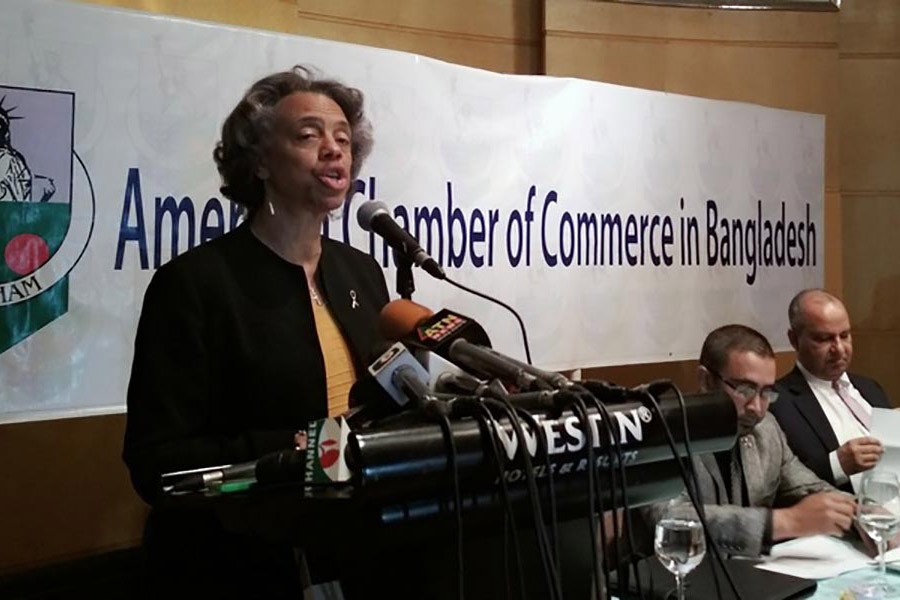US ambassador in Dhaka Marcia Stephens Bloom Bernicat has said that Bangladesh needs to take steps for removal of some major barriers in a bid to attract foreign direct investment (FDI).
In this regard, she named a few of the major barriers like corruption, cumbersome customs procedures, unfair trade, unnecessary or arbitrary regulations, and poor performance of the ports.
Other barriers, according to her, include inefficient bureaucracy and biased tendering process.
The US envoy came up with the observation while addressing a group of businesspeople at the regular luncheon meeting of American Chamber of Commerce in Bangladesh (AmCham) at a city hotel on Monday.
"US businesses want transparent business environment and a level playing field," said Bernicat.
The US envoy welcomed the government's decision for allowing additional time to take the opportunity of their expertise Accord and Alliance in the country.
She urged the Bangladesh government to amend the labour law and Export Processing Zones law in line with the international standards as the government made commitment to the International Labour Conference in Geneva in June this year.
The US ambassador also said Bangladesh needs to improve the labour rights in Bangladesh urgently so that the US apparel retailers and brands do not complain the poor working condition and poor freedom of association.
"There is a growing concern among the US buyers about the poor working conditions and less freedom of association in Bangladesh," she said.
On Rohingya issue, she highly appreciated the role of the government and the people but said this crisis will also have an impact on the economy of Bangladesh.
She said the US government has been working through the diplomatic channels like the UN body and other international organisations to urge the Burmese authority to end the violence in Rakhaine State.
"I want to express my deep appreciation for the people and the government of Bangladesh for their generosity in responding in urgent need to Rohingya refugees fleeing to this country," said Bernicat.
She said Bangladesh could truly recollect the memory when Bangladeshi people also had taken shelters to India during the liberation war in 1971.
She shared her experiences as she recently visited the Rohingya camps in Cox's Bazar.
Bernicat said, last year, the US contributed nearly $140 million in assistance for the Rohingya people.
While she was speaking on 'overcoming obstacles doing business in Bangladesh' she said the US is still the single largest foreign direct investor in Bangladesh.
Still the US is the single largest export destination for Bangladesh. The two way trade balance was $6.8 billion last year.
The bilateral trade between the two countries is heavily tilted towards Bangladesh.


